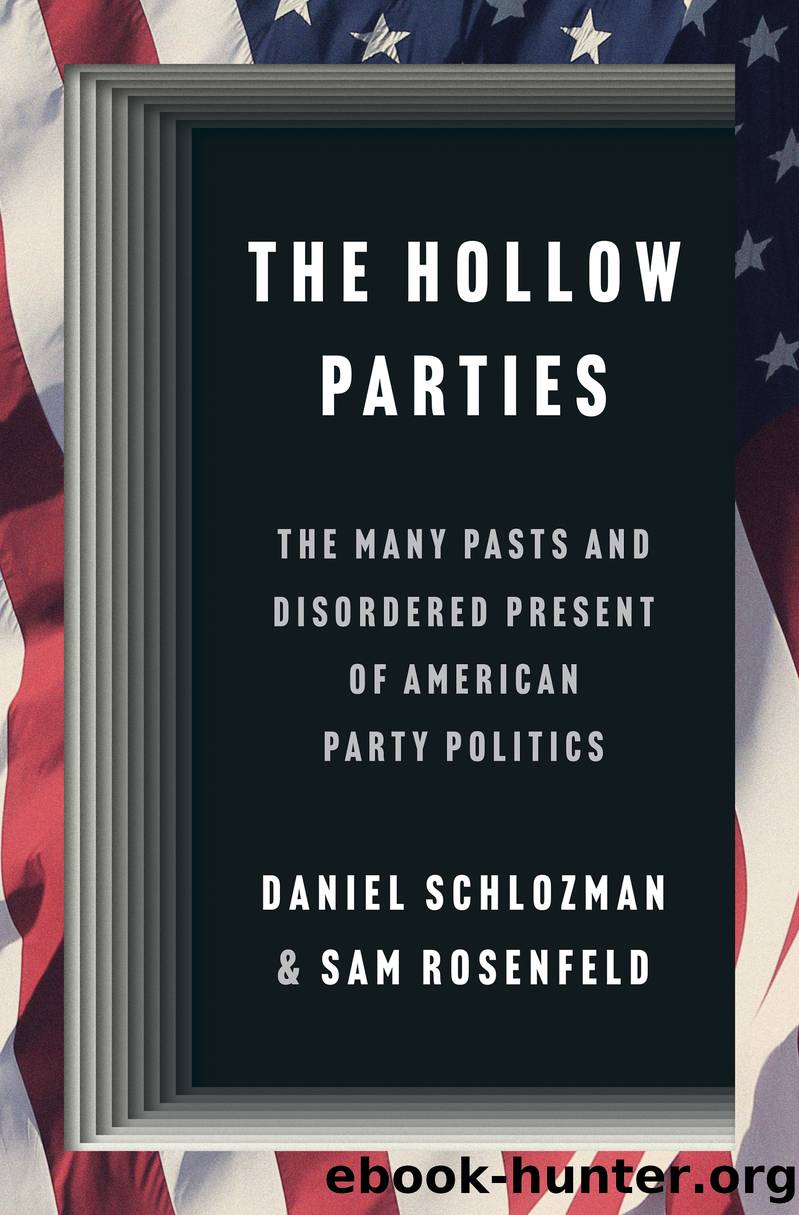The Hollow Parties by Daniel Schlozman

Author:Daniel Schlozman
Language: eng
Format: epub
Publisher: Princeton University Press
Published: 2024-02-06T00:00:00+00:00
The Kochtopus and the Political Party
In linked but distinct processes, the vacuum at the top of the GOP and the rage at Barack Obama and his administration that propelled the Tea Party also pushed forward the strongest para-organization on the right. Charles Koch, CEO since 1967 of the nationâs largest privately held corporation, Koch Industries, Inc., never sought party office. Deep in his ninth decade, he still claimed to be nonpartisan. Yet he was a party actor all the same, at once a fierce ideologue and an assiduous institution-builder. The interlocking entities of the âKochtopusâ yoked the politics of the Long New Right and the carbon economy together with the priorities of the new super-rich and worked through para-organizations that encroached on the core terrain of political parties. The Koch brand of political action, exploiting loose campaign finance rules on independent expenditures, reflects the era of hollow parties. The substantive claim that the lessons of business apply directly to politics is the transhistorical essence of the pro-capital strand. âCapital becomes powerful when it is transformed by ideas,â Koch declared in 2016.97 Whether, in the classic puzzle, his actions ultimately sprang from interests or ideas, he had plenty of both, and they pointed in the same direction.98
Koch Industries grew to become the biggest little big business of them all, with its family ownership, deep roots in Wichita, and profits reinvested in growth rather than sloughed off to shareholders. Charles Kochâs father, Fred, was a wildcatter who developed new techniques for refining oil, which he deployed in Soviet Russia and Nazi Germany. He was also a prominent member of the John Birch Society. On his death in 1967, his second son, Charles, became CEO of the Rock Island Oil & Refining Company, soon renamed Koch Industries. After bitter infighting among the four Koch brothers, Charles and his younger brother, Davidâmore comfortable in the public limelight but far less influentialâassumed control. The key juncture came when Koch Industries took full control over the Pine Bend refinery in Rosemount, Minnesota, and then beat back a strike in 1973 from the militant Oil, Chemical and Atomic Workers Union.99
For decades, Charles Koch funded right-libertarian causes with an emphasis on institution-building to propagate ideas. His critique of federal power, including over civil rights, was far more sweeping than most of the other calls to arms during the 1970s business mobilization. As a 1974 speech declared, âWe have confiscatory taxation, wage and price controls, commodity allocation programs, trade barriers, restrictions on foreign investments, so-called equal opportunity requirements, safety and health regulations, land use controls, licensing laws, outright government ownership of businesses and industries, and many more interventions. No advocate of free enterprise should confuse all of this with a free, capitalistic economy!â100
Koch Industries had battled with the Environmental Protection Agency for decades and sprang into action in 1993 when the Clinton administration proposed an energy tax.101 In the next Democratic administration, regulation of carbon prices via a cap-and-trade systemâthe centerpiece of the Obama climate agendaâdirectly threatened the core Koch businesses, starting with the Pine Bend refinery and rippling through the company.
Download
This site does not store any files on its server. We only index and link to content provided by other sites. Please contact the content providers to delete copyright contents if any and email us, we'll remove relevant links or contents immediately.
The Secret History by Donna Tartt(16762)
The Social Justice Warrior Handbook by Lisa De Pasquale(11517)
Thirteen Reasons Why by Jay Asher(7856)
This Is How You Lose Her by Junot Diaz(5844)
Weapons of Math Destruction by Cathy O'Neil(5094)
Zero to One by Peter Thiel(4884)
The Myth of the Strong Leader by Archie Brown(4819)
Promise Me, Dad by Joe Biden(4493)
Beartown by Fredrik Backman(4489)
How Democracies Die by Steven Levitsky & Daniel Ziblatt(4464)
Stone's Rules by Roger Stone(4454)
The Fire Next Time by James Baldwin(4396)
100 Deadly Skills by Clint Emerson(4127)
A Higher Loyalty: Truth, Lies, and Leadership by James Comey(4073)
Rise and Kill First by Ronen Bergman(4061)
The David Icke Guide to the Global Conspiracy (and how to end it) by David Icke(3933)
The Farm by Tom Rob Smith(3907)
Secrecy World by Jake Bernstein(3828)
The Doomsday Machine by Daniel Ellsberg(3771)
